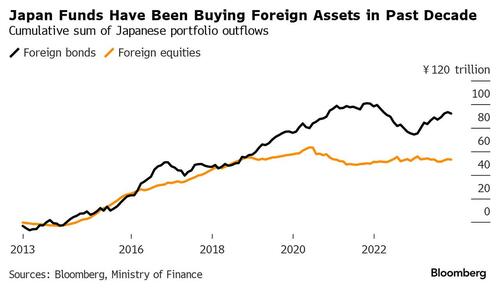The Plumbing Of The Financial System We Don't See
There are a lot of parts or plumbing in the financial system that we don't see. It is important to note that the financial system and the economy may intersect, but they are not the same thing. Ignoring this fact, as many people do, will come back to haunt us.
This is why I have pounded away at the idea that where and what we buy has a major impact on the future of both communities and countries. I just finished watching "Thoughtful Money (with Adam Taggart) Good news!" This was a deep-dive discussion of over three hours.
This important video did nothing to change my mind about where the world is going. In short, I liked Brent Johnson's line, "certainty is death." He claims he is not certain about anything. The footnote under the discussion title makes it clear that Investing in stocks, bonds, exchange-traded funds, mutual funds, and money market funds involves risk of loss. Loss of principal is possible.
Also, some high-risk investments may use leverage, which will accentuate gains & losses. Foreign investing involves special risks, including a greater volatility and political, economic, and currency risks and differences in accounting methods. In short, it underlines Johnson's uncertainty.
More than one economist, big wig CEO, and Fed watcher have admitted the problems haunting the financial system have very deep roots. These people often contend governments and central banks have not fully rectified the problems causing the great financial crisis of 2008. Instead, they have merely papered over our failures by printing money and flooding the system with liquidity.
In truth, the financial system is a rickety, cobbled-together mess of poorly-fitted pieces. Overall, the financial system is not a well designed machine. Instead, it is glued together in a haphazard way to get the job done. To make matters worse, this system is greased by the greed of those who benefit from stealing a little from here and there.
In the real world, things are usually not intentionally designed to be complicated, but the reality is that they just are. Part of getting a clear picture of where we are headed stems from the reality that this is not all about economics, but instead politics play a major part in our future.
Recessions have always had the effect of cleansing the economy of weak, noncompetitive companies to clear the way for new, stronger companies. The efforts of those in charge of such things to remove recessions from the economic cycle have created a new hazard.
An excellent example of "hidden plumbing" is the Japanese carry trade. An article by Bloomberg reporter Masaki Kondo titled, "Aozora Delivers Grim Reminder Of Japan Carry-Trade Risk," details some of these issues.
It details how Japanese investors as a whole have boosted their overseas investment since the BOJ expanded monetary easing in 2013. This includes Japanese banks. This puts them at risk if the cost of borrowing in yen should rise. He points out that this could trigger an unwinding of Japan's massive carry trade.

While many people have focused on the losses US banks have incurred on long-term US bonds and American Banks' exposure to commercial real estate, little attention has been paid to Japan's exposure to these items. Not only could Japanese banks take a hit on both these investments, but Japan's exposure to the downturn and losses in China may be another area for concern.
Yes, it is possible that China's economic problems will spill over and negatively impact Japan. Still, this is an area many financial experts claim is an opportunity for Japan to expand into and exploit -- in short, they claim economic chaos in China is a plus.
We should be aware that clogs in the system could create liquidity issues, and even a change in the velocity at which money moves through the financial system could cause problems. The "slowing in the velocity of money" is rooted in where it is being placed. The speed at which money flows through the economy in some ways is tied to the speculation about the future of inflation.
Behind the scenes, a lot of things are occurring that we don't recognize as important until they are unveiled as being so. Trade deficits, reshoring of manufacturing, changes in how taxes are accessed, man made and natural disasters, and more all flow into this mix. This translates into "nobody really knows what the future holds."
Another thing we should be worried about is "financial one-offs." These are one-time events that may prove unable to propel the financial system forward over the long haul. In a world void of financially nutritious content, an individual has to really go out of their way to become educated in the way to avoid ending up as financial road kill. The less you know may increase your feeling that all is well, but does little to ensure your financial future.
More By This Author:
Austerity Appears To Be An Idea Long DeadWhat Data Should Investors Believe? It Is All Skewed
Economic Transition Should Be A Natural Progression
Disclaimer: Please do your own due diligence before buying or selling any securities mentioned in this article. We do not warrant the completeness or accuracy of the content or data provided in ...
more


